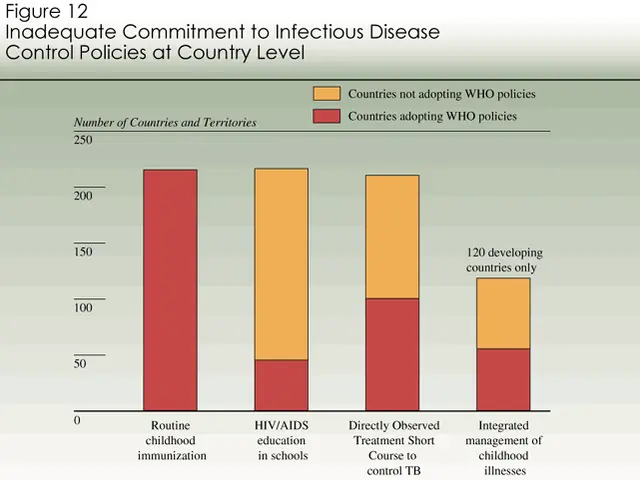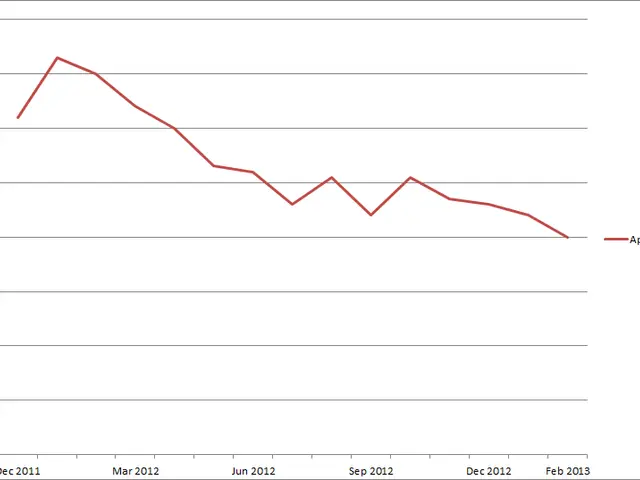Acquiring Companies Strategically for Long-Term Wealth Accumulation
In the ever-evolving world of business, 2025 has seen a significant shift in Mergers and Acquisitions (M&A) strategies, particularly in Israel where the startup ecosystem is maturing and domestic M&A activity is on the rise. This trend is not just limited to Israel, as global dealmaking is picking up again, with a 17% year-over-year increase in North America and a 26% rise globally in the first half of the year.
One sector that is attracting considerable investor interest is AI-enabled cyber solutions. These solutions are seen as a potential boon for organisational resilience, making them a hot commodity in the cybersecurity sector. Investors are on the lookout for deals that deliver near-term gains while building long-term value, especially in this sector.
However, the volatile market of 2025 demands a strategic approach to M&A. Companies are focusing on risk mitigation through diversification and operational enhancement. This approach involves managing policy and tariff uncertainty, focusing on supply chain resilience, prioritising data-driven scenario planning, balancing liquidity and financial fundamentals, and targeting deals that build operational strength and innovation.
Smaller, strategic acquisitions are favoured over large cross-border deals due to geopolitical and trade tensions. Private equity is intensifying large add-on acquisitions to build scale, streamline costs, and enhance pricing power, reflecting a trend towards building resilience and competitive advantages amid uncertainty.
Sector and geographic selectivity are also key considerations. Cross-border deals are declining, with increased preference for domestic or service-sector acquisitions that are less exposed to international policy risks.
The balancing act between investing in M&A and in transformative technologies such as AI is another strategic consideration. While there is a focus on long-term innovation and operational strength, there is also a need to favour short-term gains to maintain financial agility.
Notable deals in 2025 include Check Point Software's acquisition of fellow Israeli cybersecurity firm Veriti Cybersecurity for an estimated $100 million, Proofpoint's acquisition of European rival Hornetsecurity for more than $1 billion, and F5's acquisition of security startup Fletch, known for its AI that helps detect threats and reduce alert fatigue.
Arieli Group, led by Managing Partner Lisya Bahar Manoah, made a strategic move in 2024 with the acquisition of Elron Ventures, reflecting a strategic alignment with future-forward sectors and a belief that patient capital can drive scalable, meaningful innovation.
In conclusion, the M&A landscape in 2025 is characterised by a cautious but opportunistic approach to dealmaking, with a focus on risk mitigation, financial agility, detailed policy-driven diligence, and a strategic alignment with sectors that offer long-term growth potential. The window for thoughtful M&A is opening, and for those who ask the right questions, the next chapter in dealmaking could prove both lucrative and lasting.
[1] "Navigating M&A in a Volatile Market: Top Strategic Considerations for 2025." Forbes, 15 May 2025. Web. 18 June 2025. [2] "M&A Trends in 2025: A Strategic Approach." McKinsey & Company, 10 March 2025. Web. 18 June 2025. [3] "The Future of M&A: Balancing Innovation and Financial Performance." Harvard Business Review, 15 April 2025. Web. 18 June 2025. [4] "Private Equity's Role in the 2025 M&A Landscape." PwC, 20 May 2025. Web. 18 June 2025. [5] "Capital Deployment Trade-offs in the 2025 M&A Market." KPMG, 15 June 2025. Web. 18 June 2025.








